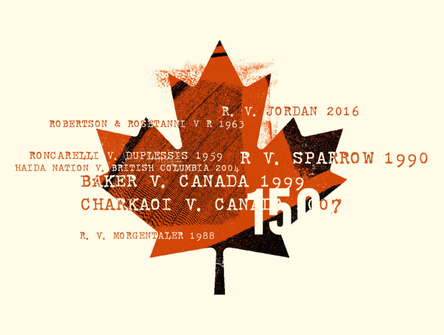Immigration minister says protesting government the right thing to do, targeting individuals isn’t
"If people confuse the legitimate right to criticize the Netanyahu government with picking on Jews in this country, I don't want your vote.”

As pro-Palestinian protestors outside accused him of having blood on his hands, Immigration Minister Marc Miller told attendees of the Canadian Bar Association's immigration conference in Montreal over the weekend that they had every right to be there.
"The people outside have a right to protest," he said, noting many come from countries that deny that right.
"That's not the country that Canada is. Protesting me and the government is the right thing to do."
He noted that suppressing the right to protest leads to frustration and anger taken out in other ways.
That said, there's a wrong way to go about it, whether it's encouraging terrorism or targeting Jewish institutions and Jews.
Calling the situation in Gaza "disastrous" and "a humanitarian catastrophe," the minister said there are charged emotions on both sides of the conflict. But people are feeling targeted and threatened.
"The right to protest comes with a responsibility, and I think it needs to be properly exercised. Don't do it by targeting individuals and making them feel insecure," he told those gathered.
"If people confuse the legitimate right to criticize the Netanyahu government with picking on Jews in this country, I don't want your vote."
In January, three months into the conflict, the federal government launched a reunification program offering temporary refuge to family members of Canadian citizens and permanent residents — parents, siblings, grandparents, and grandkids — who are in Gaza.
Miller said it was a "rapidly put together and probably singular in the world attempt" to get people's families out.
It came with a lot of uncertainty, coupled with the additional challenge of an ongoing war and no pre-determined commitment from Israel or Egypt, which control the exit, mainly through Rafah, that it would succeed.
"I wanted to make sure when we announced this program that we didn't simply issue visas, give false hope and strand people. But we absolutely owed it to Palestinian Canadians to try and get their families out in the face of this desperate situation," the minister said.
"In government, there are things that you manage and things that you control. This was something we managed, and we took a risk."
By March, just 14 people had made it through the application process and been approved, prompting Miller to call the program "a failure."
While the government got Canadians and permanent residents out of Gaza, doing the same for their families proved more difficult.
Two months later, with some slow progress made, the minister said it's still "very limited in its success." More than 200 visas have been issued, but frustration and challenges persist.
Despite the recent developments in Rafah, Miller said he has some hope that Canada will be able to get more people out on a humanitarian basis. He's agreed to expand the program and is committed to growing the numbers, drawing on diplomatic efforts.
However, when even the US can't influence the situation, he said it's a sign of the ability of Canada, with even less capacity, to influence it.
Miller is undeterred.
"I won't be happy until those people are out and safe. This is about saving lives, and we owe it to ourselves to try harder. We could have sat on our hands and done nothing. But we chose to take a risk."
Asked whether other countries are having more success on this front, Miller said everyone is running up against the same challenges. Still, several have tried to reproduce the program Canada has put in place, including the US, which reached out to ask "how we got this in place so quickly."
The conversation also turned to the current tension in Canada around housing affordability and immigration in the face of an aging population and labour shortage.
Miller said when it comes to immigration, the reality is this country has no choice given its relatively older workforce.
"We can either increase the number of babies in this country or bring in new migrants. Frankly, we could have a baby boom right now, but we would still need to bridge 20 years through immigration."
There were seven workers for one retiree when he was young. Today, in Canada, it's closer to three to one.
"So if we want to maintain all the social programs that have defined the fabric of this country, we have no choice but to welcome qualified workers to help with that," Miller said.
"Immigration isn't the only solution, but it is part of solving the bigger problem."
It comes with a conundrum, however.
The cost of shelter across the country has increased in recent years. And while Miller said that immigrants can't be blamed for the increase in interest rates, the volume of temporary residents is undeniable.
Historically, temporary residents have made up about two per cent of Canada's population. In 2023, they accounted for 6.2 per cent.
The government has announced plans to curb the country's population growth by reining that in to five per cent over the next three years.
In November, after several recent increases, the government also said it would keep the number of new permanent residents steady at 500,000 in 2026. In January, it announced plans to scale back the number of international students by putting a two-year cap on new admissions.
After meeting with his provincial counterparts last week and emerging with an "exceedingly rare" unanimous communique, Miller suggested that one way to decrease temporary residents is to make them permanent.
"(That consensus) reflects the fact that we need to get things right," he said.
"We can do it as a country, but it isn't by reproducing the rhetoric that we're seeing to the south of us or in different countries across the world."


